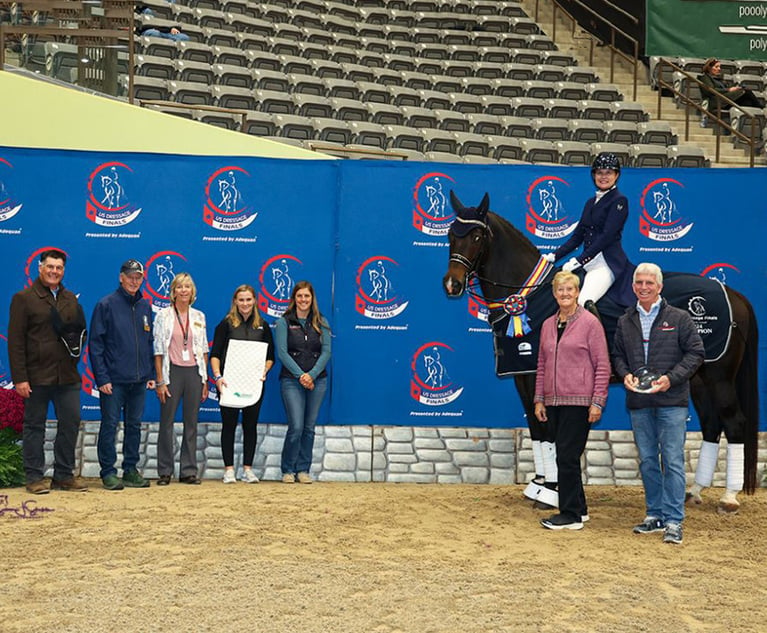Jury Sides With Jazz Club After Patron Rejected $100K Settlement Over Fall
Attorneys for Cafe 290 said they will seek legal fees after their $100,000 settlement offer was rejected.
August 19, 2019 at 02:34 PM
5 minute read
 Brantley Rowlen (left) and Kate Cappelman of Lewis Brisbois Bisgaard & Smith, Savannah. (Courtesy photos)
Brantley Rowlen (left) and Kate Cappelman of Lewis Brisbois Bisgaard & Smith, Savannah. (Courtesy photos)
A trial over a woman’s claim that she suffered multiple injuries in a fall at jazz club Cafe 290 ended on a sour note for her when a Fulton County jury found for the defense after a weeklong trial.
Lead defense attorney Brantley Rowlen said that, because she turned down an offer to settle the case for $100,000, he’ll ask the court to award attorney fees somewhere between $75,000 and $100,000 under Georgia’s offer of judgment statute.
That law says a plaintiff who declines a settlement offer then loses at trial may have to pay the defendant’s attorney fees from the date of the rejected offer.
“There were some pretrial negotiations, but we were always several hundred thousand dollars apart,” said Rowlen, managing partner at the Savannah office of Lewis Brisbois Bisgaard & Smith, who tried the case with associate Kate Cappelman.
Plaintiff Tina Spencer-Smith is represented by Bruce Millar and Anthony Jones of Jonesboro’s Millar & Mixon. They did not respond to requests for comment.
According to Rowlen and court filings, Spencer-Smith, now 54, arrived at the Sandy Springs nightspot with a friend for a show in April 2015.
Her complaint said the hostess asked another employee to show them to their table. That employee, in turn, pointed out their reserved, high-top table but did not escort them to it.
As Spencer-Smith pulled out the bar stool-type chair, she stepped backward and tripped over a step leading to an exit door and fell.
“Tina immediately felt pain in her right hip and right knee,” her account of the incident said. “After her fall, Tina attempted to stay but could not take the increasing pain.”
Spencer-Smith’s friend drove her to the emergency room at Northside Hospital.
She underwent a physical therapy regimen, but the pain continued, and a few months later she had an MRI that revealed a spinal disc bulge in her lower back.
She was treated by multiple doctors for hip and thigh pain and in 2018 underwent surgery to repair torn cartilage in her hip.
Spencer-Smith sued Cafe 290’s corporate owner, Volunteer Restaurant Associates, and property owner Newburger-Andes Co. in Fulton County State Court in 2017.
According to Spencer-Smith’s pleadings, a light that was supposed to illuminate the steps was covered with a poster, and candles on the tables were not sufficient to allow her to see where she was going.
Spencer-Smith also said a staff member told her she was not the first person to fall over the steps.
According to the pretrial order, Spencer-Smith had medical bills totaling nearly $157,000 and is likely to accrue more in the future.
Cafe 290’s portion of the order said the stairs were illuminated by a floor light and a spotlight on the ceiling and that there was an illuminated exit sign over the door.
Spencer-Smith also was cautioned to mind the steps, Cafe 290 said, and “had been to other night clubs and jazz clubs before, and was therefore aware nightclubs, especially those featuring live music, typically use lower lighting.”
“The steps were in an open and obvious location readily visible and noticeable, despite low light,” it said.
“There was no dispute that she fell,” Rowlen said. “One of our contentions was, how dark was it? Everyone used the terms ‘dim lighting’ or ‘dark’—what does that mean? Movie theater dark? Houston’s restaurant dark? Like any other jazz club or establishment that has the lights dimmed for ambiance purposes, there was enough light to walk around.”
During the trial before Judge Diane Bessen, Rowlen said Spencer-Smith’s treating physicians provided expert testimony, including “pretty dramatic” testimony from the surgeon who operated on her hip that the treatment was not related to fall itself, he said.
The defense expert was Cumming orthopedic surgeon Keith Osborn, he said.
After the close of evidence the defense filed a motion for a directed verdict, arguing among other things that Spencer-Smith had not specifically linked all of her medical bills to the fall and that her claims for those damages “is based upon speculation and guesswork.”
The motion asked that she be required to prove “with specificity, which bills are related to the subject incident, or to remove those bills which she does not claim.”
Bessen “granted the motion related to special damages but let it go to the jury anyway,” Rowlen said.
After about an hour-and-a-half, the jury asked for guidance on the “open and obvious” jury instruction Bessne gave them and returned a defense verdict a half-hour later.
“Ultimately, they never got past liability,” he said.
Rowlen said he did not speak to the jury afterward.
“I don’t generally hang around if I win,” he said.
This content has been archived. It is available through our partners, LexisNexis® and Bloomberg Law.
To view this content, please continue to their sites.
Not a Lexis Subscriber?
Subscribe Now
Not a Bloomberg Law Subscriber?
Subscribe Now
NOT FOR REPRINT
© 2025 ALM Global, LLC, All Rights Reserved. Request academic re-use from www.copyright.com. All other uses, submit a request to [email protected]. For more information visit Asset & Logo Licensing.
You Might Like
View All


'It Refreshes Me': King & Spalding Privacy Leader Doubles as Equestrian Champ
5 minute read
Federal Judge Rejects Teams' Challenge to NASCAR's 'Anticompetitive Terms' in Agreement
Trending Stories
Who Got The Work
J. Brugh Lower of Gibbons has entered an appearance for industrial equipment supplier Devco Corporation in a pending trademark infringement lawsuit. The suit, accusing the defendant of selling knock-off Graco products, was filed Dec. 18 in New Jersey District Court by Rivkin Radler on behalf of Graco Inc. and Graco Minnesota. The case, assigned to U.S. District Judge Zahid N. Quraishi, is 3:24-cv-11294, Graco Inc. et al v. Devco Corporation.
Who Got The Work
Rebecca Maller-Stein and Kent A. Yalowitz of Arnold & Porter Kaye Scholer have entered their appearances for Hanaco Venture Capital and its executives, Lior Prosor and David Frankel, in a pending securities lawsuit. The action, filed on Dec. 24 in New York Southern District Court by Zell, Aron & Co. on behalf of Goldeneye Advisors, accuses the defendants of negligently and fraudulently managing the plaintiff's $1 million investment. The case, assigned to U.S. District Judge Vernon S. Broderick, is 1:24-cv-09918, Goldeneye Advisors, LLC v. Hanaco Venture Capital, Ltd. et al.
Who Got The Work
Attorneys from A&O Shearman has stepped in as defense counsel for Toronto-Dominion Bank and other defendants in a pending securities class action. The suit, filed Dec. 11 in New York Southern District Court by Bleichmar Fonti & Auld, accuses the defendants of concealing the bank's 'pervasive' deficiencies in regards to its compliance with the Bank Secrecy Act and the quality of its anti-money laundering controls. The case, assigned to U.S. District Judge Arun Subramanian, is 1:24-cv-09445, Gonzalez v. The Toronto-Dominion Bank et al.
Who Got The Work
Crown Castle International, a Pennsylvania company providing shared communications infrastructure, has turned to Luke D. Wolf of Gordon Rees Scully Mansukhani to fend off a pending breach-of-contract lawsuit. The court action, filed Nov. 25 in Michigan Eastern District Court by Hooper Hathaway PC on behalf of The Town Residences LLC, accuses Crown Castle of failing to transfer approximately $30,000 in utility payments from T-Mobile in breach of a roof-top lease and assignment agreement. The case, assigned to U.S. District Judge Susan K. Declercq, is 2:24-cv-13131, The Town Residences LLC v. T-Mobile US, Inc. et al.
Who Got The Work
Wilfred P. Coronato and Daniel M. Schwartz of McCarter & English have stepped in as defense counsel to Electrolux Home Products Inc. in a pending product liability lawsuit. The court action, filed Nov. 26 in New York Eastern District Court by Poulos Lopiccolo PC and Nagel Rice LLP on behalf of David Stern, alleges that the defendant's refrigerators’ drawers and shelving repeatedly break and fall apart within months after purchase. The case, assigned to U.S. District Judge Joan M. Azrack, is 2:24-cv-08204, Stern v. Electrolux Home Products, Inc.
Featured Firms
Law Offices of Gary Martin Hays & Associates, P.C.
(470) 294-1674
Law Offices of Mark E. Salomone
(857) 444-6468
Smith & Hassler
(713) 739-1250






